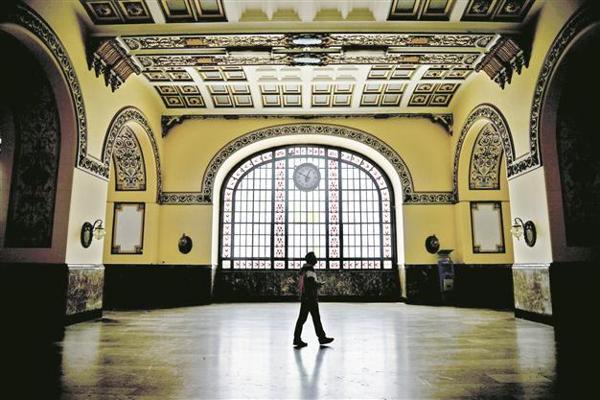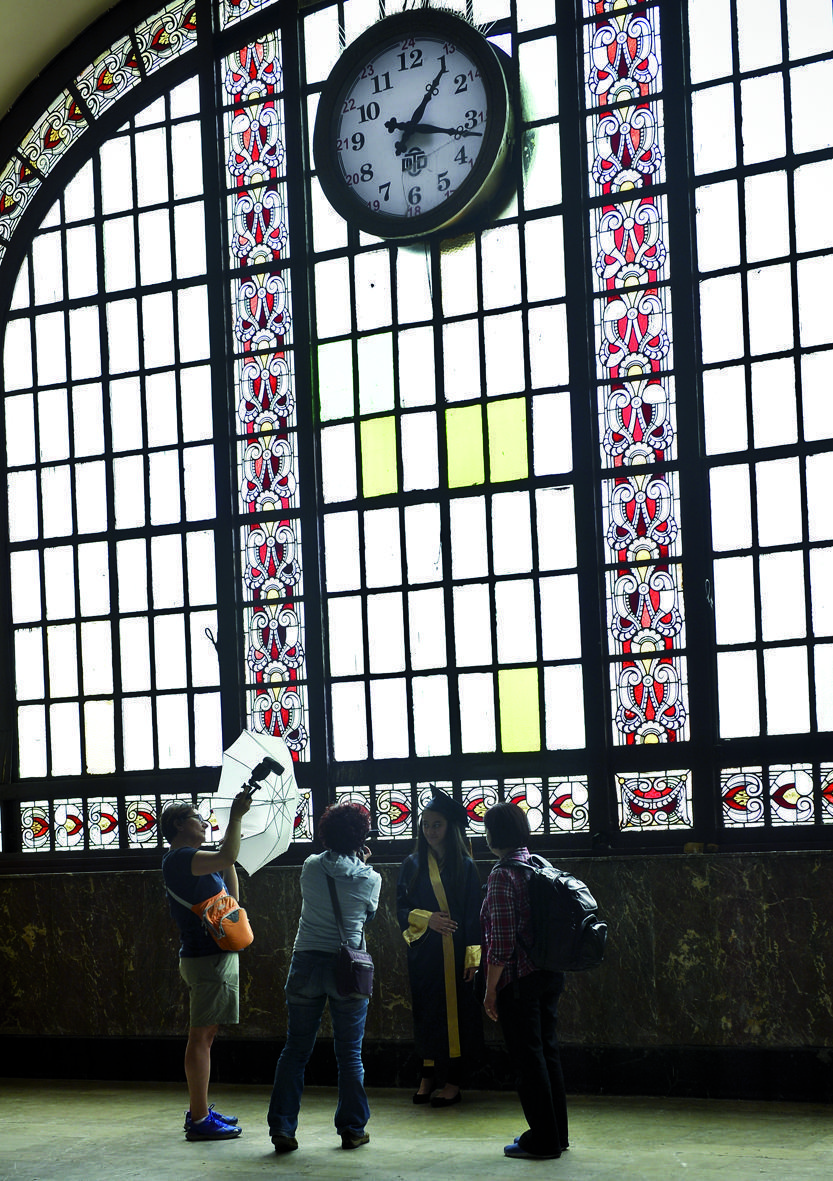Haydarpaşa Station like a museum of history
ISTANBUL - Anadolu Agency


The Haydarpaşa Railway Station is one of the iconic structures in Istanbul. It was built by German architects Otto Ritter and Helmuth Cuno, as the starting point of the Istanbul-Baghdad, or Hejaz railway.
One of Istanbul’s most iconic sites, the Haydarpaşa Railway Station, was built 106 years ago during the reign of Ottoman Sultan Abdülhamid II.The station was built by German architects Otto Ritter and Helmuth Cuno, as the starting point of the Istanbul-Baghdad, or Hejaz railway. Many of the station’s sections and the passenger lounge were opened on Aug. 19, 1908.
On the first day of its opening, the station suffered a fire and was only reopened on Nov. 4, 1909 after a restoration process. The building was used as an armory during the War of Independence and World War I, but was sabotaged on Sept. 6, 1917 when the armory exploded. The station then completely collapsed. On the 10th anniversary of the founding of the Turkish Republic, the station was rebuilt to its original state and a comprehensive restoration was also carried out in 1976.
Some sections of the station were damaged during the Independenta tanker accident in 1979, when a large Romanian crude oil carrier exploded after colliding with a Greek freighter at the southern entrance of the Bosphorus. The wreck burned for weeks, causing heavy air and sea pollution around the Istanbul area and the Sea of Marmara.


Objects from the Ottoman era
The structure served as a train station from the first day of its opening, but it was it was temporarily closed to long-distance trains on Feb. 2, 2012, for at least 30 months, to allow for the construction of the Istanbul–Ankara high-speed railway and the Marmaray rail transport project. Finally, as announced by the Turkish State Railways, the only remaining train service from Haydarpaşa, the suburban line to Pendik, closed on June 19, 2013 for at least 24 months for line improvement works.
Currently, the upper floors of the station are used by the Turkish State Railways Regional Directorate. The building - which is still home to historical objects such as a library, a cabinet, tables, chair, and stoves from the Abdülhamid II era - is now like a museum.
There is a lobby, an education and conference room and a local office on the 3rd floor of the station. The first emblem ever used by the Turkish State Railways draws attention on the cabinets, featuring iron wings coming out of a rail wheel.
According to information provided by the Turkish State Railways, a reconstruction plan for the protection of Haydarpaşa Station and the wider Kadıköy neighborhood has been made, as the station is located in a historically protected area. The planning works have been made in collaboration with civil society organizations, universities and public bodies. According to the regeneration plan, the ground floor will continue as a railway station and the other three floors currently used by the Turkish State Railways will become cultural and accommodation areas.
On Feb. 17, the 2nd Istanbul Administrative Court suspended the execution of the plan and the court process is still continuing.
